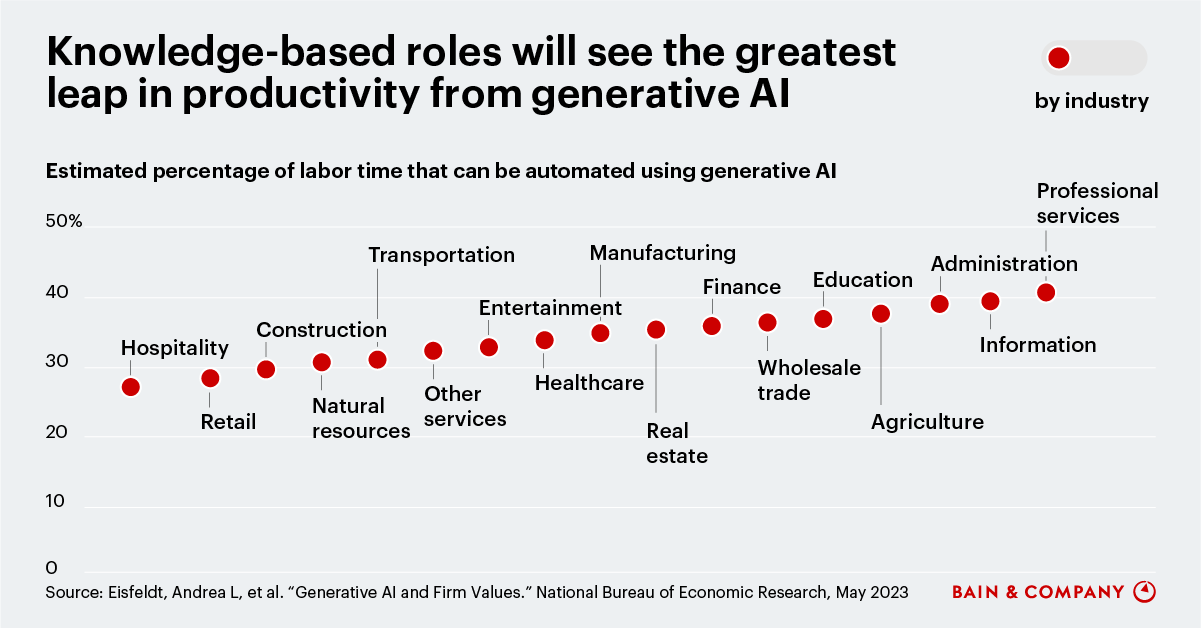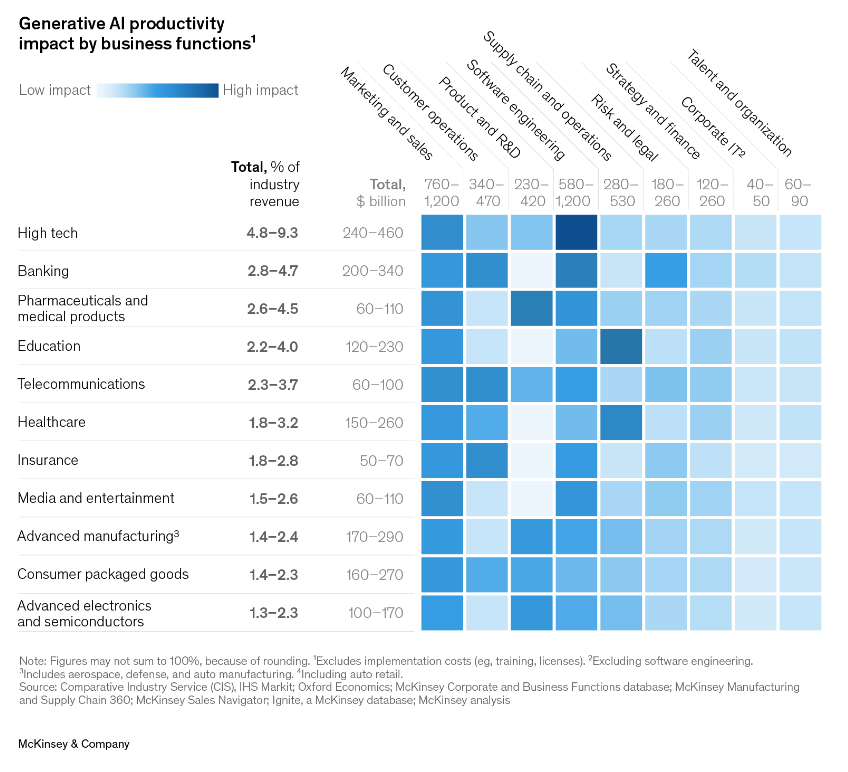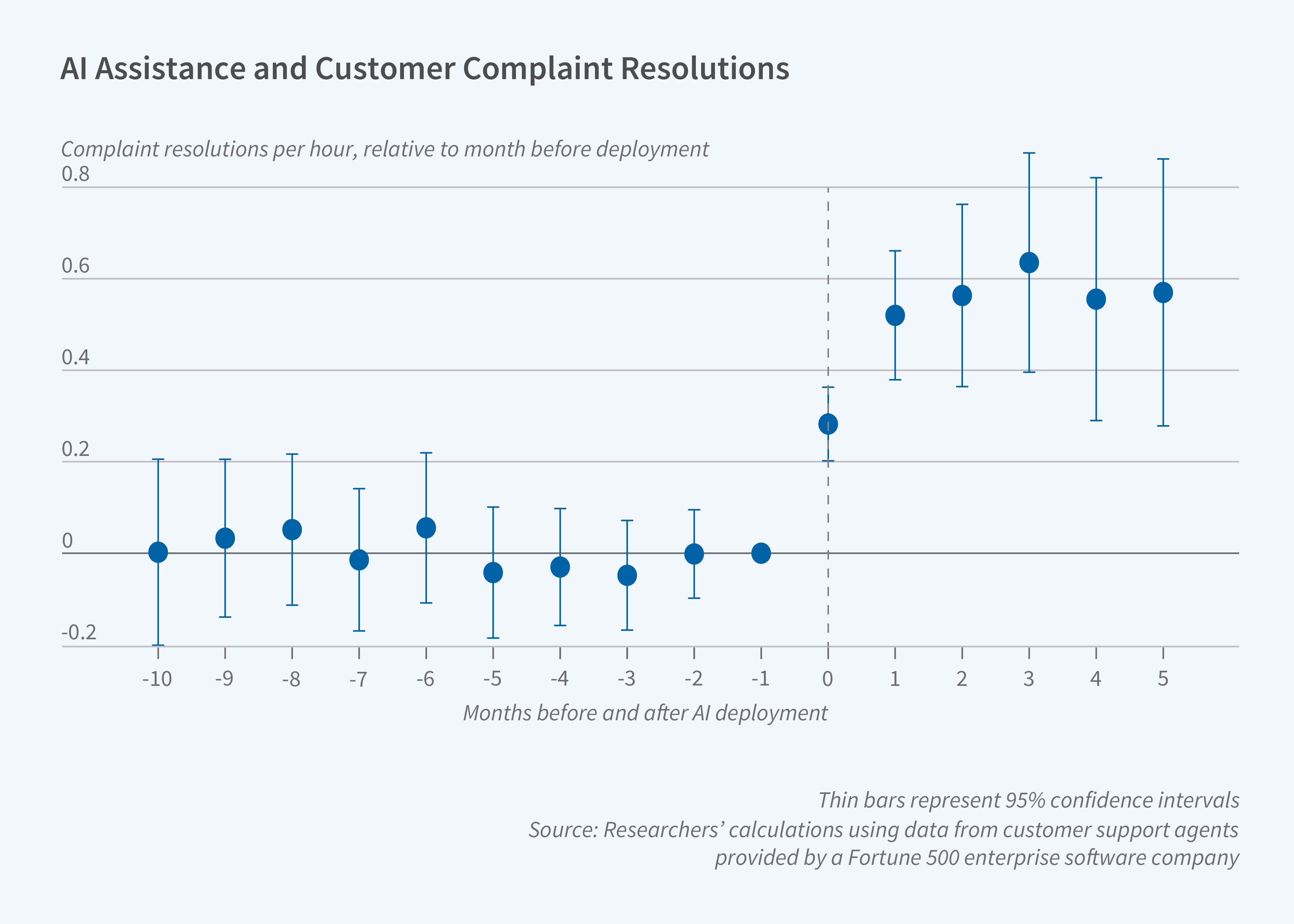The Future of Generative AI: Innovation, Responsibility, and Regulation
Generative AI is rapidly evolving from a novel tool into a fundamental component of daily life and business, with profound implications for productivity, industry transformation, and societal norms. Its trajectory is shaped by three interwoven themes: innovation, responsibility, and regulation.
Innovation
- Productivity and Economic Impact: Generative AI is projected to increase productivity and GDP significantly over the coming decades, with estimates suggesting a 1.5% boost by 2035, nearly 3% by 2055, and 3.7% by 2075. Early gains are modest as adoption is still in its infancy, but as AI tools improve and are applied to more tasks—especially in sectors like software development and professional services—their economic impact will grow.
- Trends Shaping Adoption: Key trends include the rise of AI-powered agents with greater autonomy, the ability to handle unstructured data (text, images, audio), and the emergence of multimodal AI systems that can process and generate multiple types of content. These advancements are enabling AI to move beyond simple chat interfaces to become collaborative partners in complex workflows.
- Enterprise Integration and Specialization: Generative AI is increasingly integrated into enterprise systems, with a focus on specialization for industry-specific tasks and the democratization of AI tools, making them accessible to a broader range of users and organizations.
Responsibility
- Ethical Challenges: The rapid deployment of generative AI raises significant ethical concerns, including privacy risks (due to the use of vast, often personal datasets), the potential for bias and unfair outcomes, and issues of transparency and accountability. These systems can inadvertently memorize and reproduce sensitive data, and their outputs may reflect or amplify biases present in training data.
- Mitigating Risks: Responsible development requires diverse training data, algorithmic fairness techniques, ongoing monitoring, and inclusive teams to identify and address potential harms. Organizations must also implement robust data governance, clear consent mechanisms, and anonymization practices to protect user privacy.
- Public Trust: High-profile ethical failures and regulatory gaps have undermined public confidence, making it essential for organizations to proactively address ethical issues and establish strong governance mechanisms to maintain trust.
Regulation
- The Need for Adaptive Governance: The pace of AI innovation demands regulatory frameworks that are flexible and iterative, capable of responding to new risks as they emerge. Traditional audit and compliance mechanisms may be insufficient; regulatory sandboxes and pilot programs can help regulators understand practical challenges and adapt rules accordingly.
- Global Regulatory Landscape: Governments worldwide are developing legislation to balance innovation with risk mitigation, though formal regulation often lags behind technological advances. In the interim, voluntary codes of conduct and industry self-regulation can complement official oversight, but are not a substitute for comprehensive, enforceable standards.
- Collaboration Across Sectors: Effective governance requires collaboration between governments, industry, and civil society to build regulatory capacity, share best practices, and ensure that AI development aligns with societal values and democratic principles.
Key Takeaways
- Generative AI will drive significant productivity gains and economic growth, but its full impact will unfold gradually as adoption deepens and technology improves.
- Responsible innovation is critical to addressing ethical risks, maintaining public trust, and ensuring that AI benefits are widely shared.
- Regulation must be adaptive, participatory, and globally coordinated to keep pace with technological change and protect public interests.
The future of generative AI hinges on balancing rapid innovation with thoughtful responsibility and agile regulation—a challenge that will shape not only technology, but the broader fabric of society in Canada and beyond.




















Maple Ranking offers the highest quality website traffic services in Canada. We provide a variety of traffic services for our clients, including website traffic, desktop traffic, mobile traffic, Google traffic, search traffic, eCommerce traffic, YouTube traffic, and TikTok traffic. Our website boasts a 100% customer satisfaction rate, so you can confidently purchase large amounts of SEO traffic online. For just 720 PHP per month, you can immediately increase website traffic, improve SEO performance, and boost sales!
Having trouble choosing a traffic package? Contact us, and our staff will assist you.
Free consultation